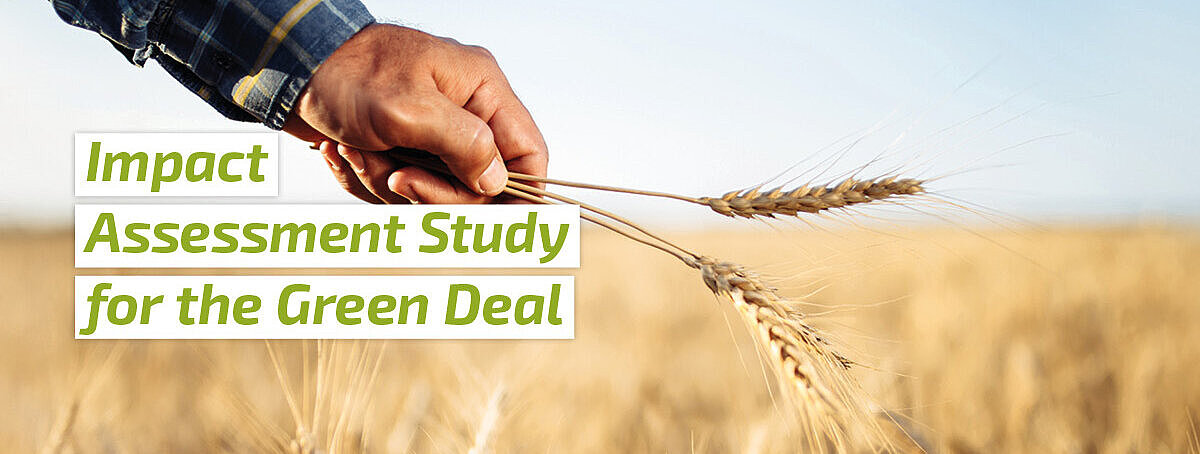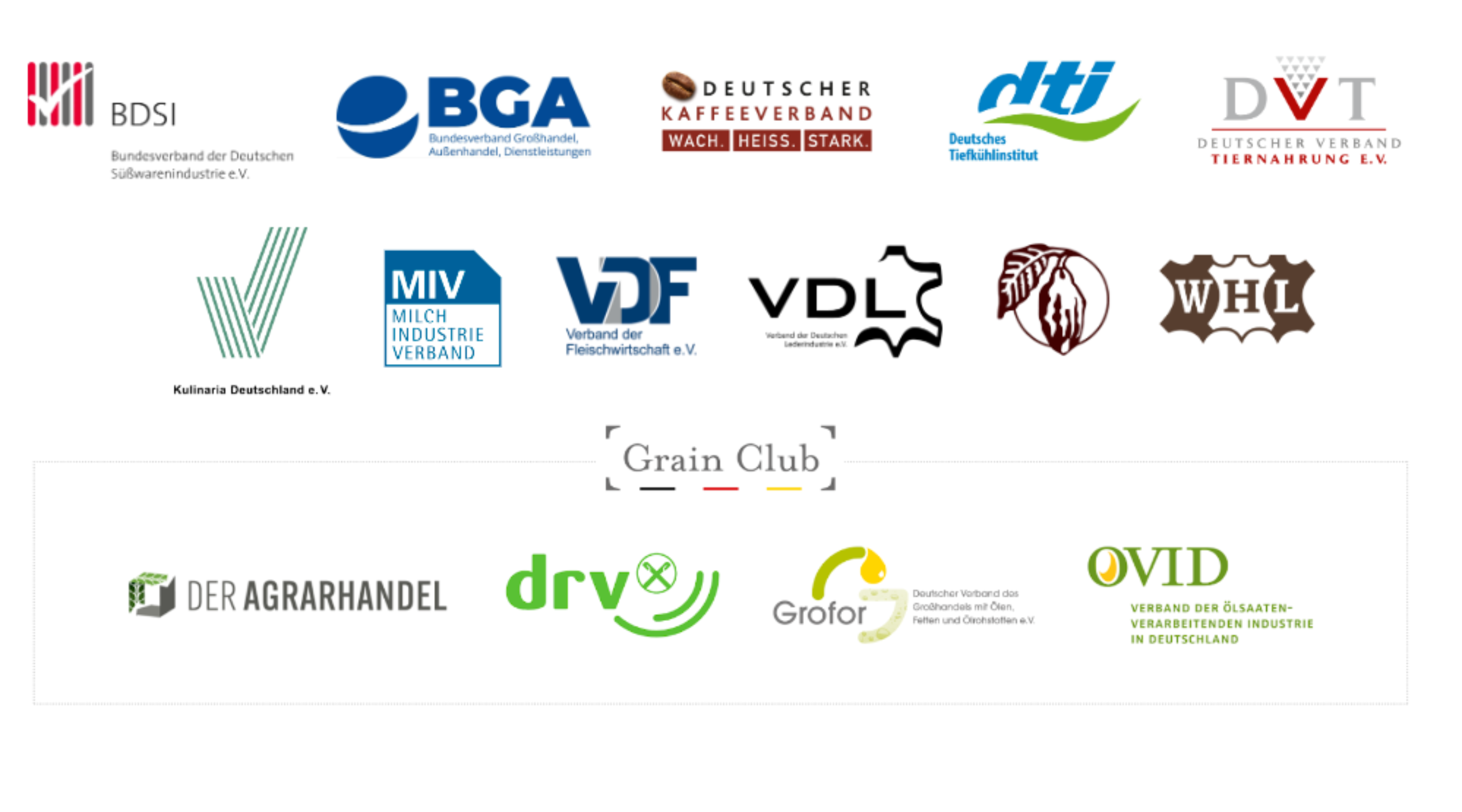Impact Assessment Study for the Green Deal. EU and German Agricultural Associations Take a Critical View of Predicted Cut in Production. Scientists Identify Potential in Implementing Innovative Agricultural Policy.

The measures proposed by the European Commission in the European Green Deal’s Farm-to-Fork and Biodiversity strategies will, if fully implemented, lead to a significant drop in agricultural production in the EU. For cereals, oilseeds and beef, the reduction will be around 20 percent. In parallel, prices will rise for agricultural products in the European Union (EU), including an increase of nearly 60 per cent for beef, around 50 per cent for pork, over 30 per cent for unpasteurised milk, as well as between 10 and 20 per cent higher prices for fruits and vegetables, oilseeds and cereals. Those are the conclusions of an impact assessment study, published today on behalf of the Grain Club alliance and other associations, and drawn up by Prof. Dr. Dr. Christian Henning, Professor of Agricultural Policy and Director of the Institute of Agricultural Economics at Kiel University
Prof. Dr. Dr. Henning, head of the study team: “Although the package of measures increases ecosystem services in the EU, it does not yet achieve the intended positive effect on the global climate. The projected greenhouse gas (GHG) savings that would occur through the decrease of European agricultural production would be entirely offset by an increase in GHG emissions from agriculture outside the EU, coupled with land use change in the EU.”

The EU is currently a major exporter of a number of products on the global agricultural market. The study notes that a sharp drop in cereals and beef production as a result of the Farm-to-Fork Strategy would entail moving from a net export position to a net import position for the EU. That would reduce the extent of Europe’s self-sufficiency. The EU territory offers excellent conditions for large volumes of high-quality food production. Ludwig Striewe of the German Agricultural Trade Association underlines: “We fully share the European Commission’s objectives concerning protection of biodiversity, water resources and climate. Ensuring security of food supply is however equally important. The EU is currently one of the main cereal exporters. Nevertheless, the balance between supply and demand is extremely tight and prices are at record levels. From the industry’s perspective, it is currently hard to imagine that EU food production could be quickly replaced by other countries’ production. That is however precisely the scenario indicated by the study: if the Farm-to-Fork Strategy is implemented, the EU will turn from a cereal exporter into a cereal importer. That means compromises and a sense of proportion will be needed to reconcile food production with protection of biodiversity, water resources and climate.”

Udo Hemmerling, Deputy Secretary-General of the German Farmers’ Association emphasises: “All farmers have a clear interest in protecting the environment and the climate, as well as ensuring that future generations will also be able to continue running farms and meeting demand for domestically produced food. However, the high EU standards for production within Europe must not be undermined by imports. The German Farmers’ Association sees an outstanding issue with the EU Green Deal in this respect. The study has revealed considerable leakage effects that would result from shifting production to non-EU countries.”

Dr. Henning Ehlers, Chief Executive at the German Raiffeisen Association, explains with reference to the potential impact: “The study fuels our doubts about the individual measures formulated in the Farm-to-Fork Strategy. The German Raiffeisen Association considers that it is hard to imagine, for example, that higher prices and a reduced supply of fruit and vegetables produced within Europe would encourage consumers to eat a more balanced diet.” Furthermore, Ehlers also points to the enormous massive cuts for upstream and downstream sectors: “Many farms would not withstand the impact of these measures.”

Prof. Henning, head of the study team, sums up: “The Farm-to-Fork Strategy does in principle hold potential for farmers and society. However, there will be a need to implement innovative agricultural policies to tap that potential. The one-size-fits-all requirements of the Farm-to-Fork Strategy as currently envisaged would be of limited efficiency in this context. The intended positive impact of individual measures relating to ecosystem services would be counteracted by negative effects which would go against some of the Green Deal’s goals.” Against this backdrop, EU and German Agricultural industry associations urge the EU to review and scrutinise the measures under the Farm-to-Fork Strategy: Are the measures effective? How would negative side effects be addressed? Which alternative measures would be better suited to achieving the objectives? The European Commission must discuss these questions in detail with all stakeholders. At the same time, it must ensure that the agricultural industry is not forced to pay the price of this desired evolution. We seek a dialogue with politicians, academia and society at large and are planning events that will offer scope to discuss the findings from the study and the Farm-to-Fork Strategy.






